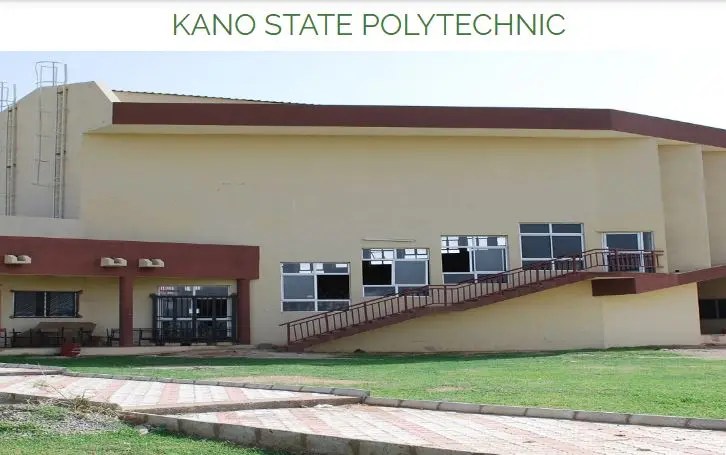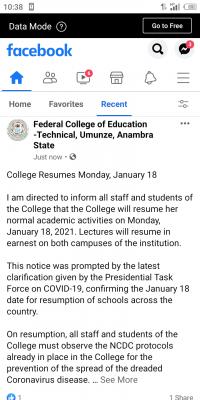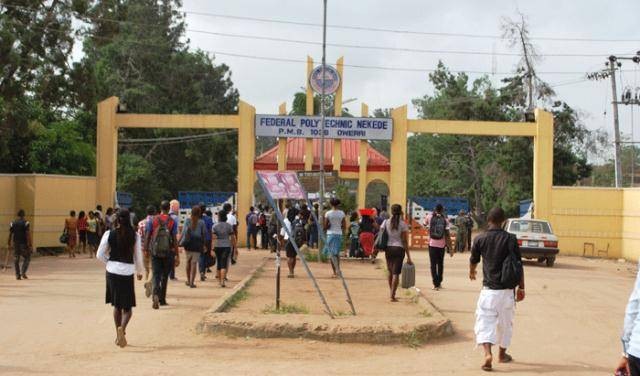
Technical and vocational education is an important stream of the educational system in many societies due to its impact on diversified human resources development.
But in Nigeria, little or no attention is being paid to this aspect. With more than 167 technical colleges nationwide whose enrollment is below capacity, stakeholders have continued to worry over the lack of attention paid to this section of the sector and its implications for national manpower development.
According to an education expert, Mr. Victor Dike, technical education is a planned programme of learning experiences that begins with exploration of career options, supports basic academic and life skills, and enables achievement of high academic standards, leadership, preparation for industry-defined work, and advanced and continuing education.
To ensure that Nigerian students are given equal opportunities to pursue their educational goals, the academically inclined ones are encouraged to proceed to senior secondary or grammar school, those commercially inclined can go to commercial school, while the technically inclined ones are encouraged to go to technical colleges.
But due to the public's misunderstanding of the rationale behind this policy, which is to ensure their inclusiveness, a lot of parents see commercial and technical colleges as inferior to conventional secondary schools, and thus, would not want their wards to attend such institutions.
Explaining the reason for the low enrollment of students into technical colleges, the Executive Secretary of the Nigerian Education Research and Development Council, NERDC, Professor Godswill Obioma, said they were given 'a stigma of inferiority, resulting in the ever-increasing registration of students into secondary schools.
"The reasoning was that if a child goes to technical school, he'll become a carpenter or something like that, and this is responsible for the high number of students in the conventional secondary schools. But at the end of the day, a lot of them come out without competencies and functioning skills needed for survival.
"The challenge we had in revising the curriculum was to seek the best ways to enable the youths acquire functioning skills of survival, whether they further their education or not."
Accordingly, the revised curriculum for the senior secondary school now incorporates technical and entrepreneurship subjects which are compulsory for everybody. Thus, it is hoped that by 2014, the first batch of students with these skills would be graduating from secondary schools with the required skills for survival and economic growth.
Arguing that technical schools are well funded, especially those sited in the state, Lagos State Ministry of Education sources say they are better equipped to churn out qualified employers of labour.
"These colleges, especially the ones in Lagos, aren't inferior to secondary schools. In fact, technical college students are more intelligent than their counterparts in secondary schools because they have to make use of their hands and creative parts of their brains to execute the practical aspect of their studies.
"The truth is that these schools are not only for those that are not academically inclined and are not inferior to secondary schools because you have to be talented and intelligent to get into one."
Vanguard Learning investigation reveals that the Lagos State Government is tailoring the education system to enable it identify students suitable for technical colleges right from primary school, and help develop their talents through proper guidance and counselling. The ultimate goal is to prepare them for the outside world and make them employers of labour.
Speaking at a different occasion, the Lagos State Commissioner for Education, Mrs. Olayinka Oladunjoye disclosed that the state government is committed to the development of technical and vocational education in the state so as to prepare the youths for the challenges of the global economy.
"In the past year, 159 trainees have graduated in modern auto-diagnosis and were awarded certificates of diagnosis, competence in auto-diagnosis and working knowledge in auto diagnosis. Over 2,000 youths in Lagos State have benefited from the Samsung Electronics Engineering Academy established at Government Technical College, Agidingbi.
"We have trained 20 master trainers through the entrepreneurship training programmes and five business clinics have been created in each of our technical colleges across the state to assist our students/trainees to prepare business plans, link them up with microfinance banks and encourage young business owners to develop the habit of proper record keeping."
But despite the numerous benefits of technical education to national development, a seasoned educationist and Principal of Kings College, Otunba Oladele Peju, has called for the reversal of the policy, which he said is a 'fundamental error.'
"The JSS-3 class is supposed to be a terminal one for those that can't progress to the senior class, but what we have today is 100 per cent transition. The UBE law needs to be updated and made to fit the reality on ground, and rather than having the 6-3-3-4, we can have the 6-6-4 system of education."
Though most of the junior secondary students that Vanguard Learning spoke with said they'll never attend a technical school, a visit to some technical colleges revealed that students seem less disciplined and the dress code less enforced than students of secondary schools.
Adeola Marcus is studying catering in a technical college. Unlike the normal procedure of resuming technical school after JSS3, she began her technical studies after finishing secondary school.
"I did it to apply the skills and since I couldn't get a job after secondary school, I decided to come here. In my department, we have no qualms about practical classes at all. I've learnt how to make so many dishes and snacks and almost ready to establish my catering business."
Joshua Orizu who studies automobile engineering says he has no regrets toeing the technical college path.
"We are being taught how to repair cars. We use actual cars for our practical, and I can repair the engine of any car, if given the chance. If there's enough money, when I'm done I would like to go to a polytechnic or university to study automobile engineering."




